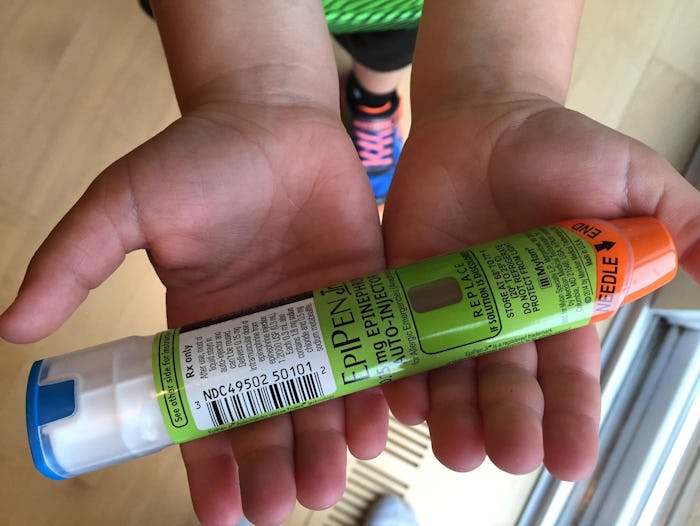News

Here's Legislation That Would Prevent The EpiPen Price Increase & Monopolies Like It
Parents of kids with extreme allergies weren't surprised to hear and see the headlines that the price of an EpiPen had skyrocketed over the last few years. The reason? A monopoly allowed Mylan, the company that makes the EpiPen, to set almost any price it chose and still maintain its customer base. Is there legislation that could prevent the EpiPen price increase and monopolies like the one that made the EpiPen price controversy possible? Vermont Sen. Bernie Sanders has already laid the groundwork.
Mylan released a statement clarifying its position:
Mylan has worked to help patients with commercial insurance pay as little as $0 for EpiPen Auto-Injector using the My EpiPen Savings Card. In 2015, this resulted in nearly 80% of these patients paying nothing out of pocket for their EpiPen Auto-Injector. However, as the health insurance environment has evolved, driven by the implementation of the Affordable Care Act, patients and families enrolled in high deductible health insurance plans, who are uninsured, or who pay cash at the pharmacy, have faced higher costs for their medicine.
People in the Unites States pay more than any other nation for prescription drugs. Part of the problem, according to the Wall Street Journal, is that prices for drugs in the U.S. are "shrouded in mystery, obscured by confidential rebates, multiple middlemen and the strict guarding of trade secrets."
And this mystery and confusion within the system is exactly what Mylan CEO Heather Bresch told CNBC on Thursday "frustrated" her too about her business:
The patient is paying twice. They're paying full retail price at the counter, and they're paying higher premiums on their insurance. It was never intended that a consumer, that the patients would be paying list price, never. The system wasn't built for that.
She continued to offer her own observations about what's driving up the price of drugs: "My frustration is there's a list price of $608," Bresch. There are "four or five hands that the product touches and companies that it goes through before it ever gets to that patient at the counter."
Now that the EpiPen pricing controversy has brought the issue to the public's attention, perhaps this is an opportunity to pass legislation that would improve transparency, boost competition, and, as a result, drive down prices.
Minnesota Sen. Amy Klobuchar sent a letter to the Federal Trade Commission asking them for policy recommendations to outlaw the conditions that created the EpiPen price issue, according to the Morning Consult:
This outrageous increase in the price of EpiPens is occurring at the same time that Mylan Pharmaceutical is exploiting a monopoly market advantage that has fallen into its lap. Patients all over the U.S. rely on these products, including my own daughter. Not only should the Judiciary Committee hold a hearing, the Federal Trade Commission should investigate these price increases immediately.
But Klobuchar and others only need to look to legislative propositions from Sen. Bernie Sanders for answers.
On his site, Sanders suggests several legislative fixes to the problem, including dropping a ban against Medicare leveraging its huge buying power to negotiate lower prices with drug companies. He also wants to beef up competition by making it easier to import cheaper drugs from Canada.
EpiPens currently cost more than $600 for a 2-pack here in the U.S., but just around $100 in Canada, according to CKOM. This is something Sanders has advocated for many years. According to BernieSanders.com:
In 1999, Sanders became the first Member of Congress to take a busload of Americans across the border into Canada to purchase prescription drugs. Americans should not have to pay higher prices for the exact same drugs than our Canadian neighbors simply because Congress is bought and paid for by the powerful pharmaceutical industry.
Sanders also recommends increasing pricing transparency through legislation that would "Require drug companies to publicly report information that affects drug pricing," according to his site.
The problems that led to Mylan's ability to gouge customers have been around for years, and there is legislation that could be passed to fix the system. The only question is whether the attention brought to the issue through this EpiPen pricing uproar will create the political will to make it happen.